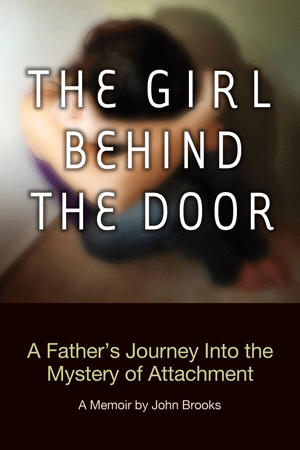
The American Adoption Congress
is an international organization comprised of individuals, families and groups committed to adoption reform, and represents those whose lives are
touched by adoption or other loss of family continuity. While the organization tends to lean toward issues relating to adopted people and birth families, all members of the adoption “triad” or “constellation” are welcome. As an adoptive parent, I found myself in the minority but felt genuinely welcomed and included.
Initially, my intention for this four-day event was to sell my book and network, but it became much more than just selling books. It brought me a much deeper understanding of my precious Casey, adopted from a Polish orphanage. In addition to adopted people and birth parents, we met activists, clinicians, therapists, nurses, social workers and members of organizations supportive of adopted people. It seemed that all members of the social spectrum were represented, including birth parents and adopted children reunited, some rejected. There were folks from the transracial and LGBT community. Adoptive parents were in attendance, but a good number of them had more than one connection to the adoption community – they were themselves adopted or even birth parents from the past. As ONLY adoptive parents, Erika and I were clearly in the minority.
After several days of sharing personal stories with this diverse group, it struck me that, in all my years as an adoptive parent, I’d never spent much time at all speaking to an adopted adult or birth parent, and that may be a common experience of many adoptive parents like me.
group, it struck me that, in all my years as an adoptive parent, I’d never spent much time at all speaking to an adopted adult or birth parent, and that may be a common experience of many adoptive parents like me.
While Casey and other adopted teens I’d spoken to expressed no interest in their adoption history, these adults (in their 20’s, 30’s and older) – almost without exception – had reunited or were in search of their biological roots. Sometimes the reunion was joyous but many times the reunion was rocky. Still, I realized how crucial it was for these people to connect with their biological lineage even if the outcome was a disappointment. So a lingering question for me was how to deal with an adopted adolescent or teen who was clearly suffering from emotional and behavioral malfunction brought on by primal hurt, someone lashing out and in denial of their past, maybe out of spite against the birth parents (and adoptive parents)? I couldn’t get an easy answer from the attendees – even the professionals – but pieced together my own in an unscientific way.
For that teen in denial, the adoptive parents can’t force a reunion on her, assuming they have the birth parents’ contact information or can find it. But they can let the child know that the contact is possible if and when they’re ready, an imperfect solution at best. Based on my own experience with Casey, it’s doubtful that no amount of cajoling, pleading and threatening will be helpful, especially considering the adoptees need for control. That’s where a qualified adoption therapist comes into play, because I don’t believe that adoptive parents are equipped to handle this delicate balancing act themselves. The therapist can work with the family to ask the right questions in the right way and help the family towards a satisfactory resolution to this primal relationship.
After four days of sharing, listening, tearing up and weeping, I came away convinced that this organization can provide a lot of value to many other adoptive parents like me. It’s not that we’re closed off, we’re just ill informed. Even better, I think a conference like this should be a pre-requisite for prospective adoptive parents. Too often, we’re so desperate to get our child home that we believe (wrongly) that the heavy lifting is done. Smooth sailing from here. Just love ‘em enough. But that’s not true. The heavy lifting begins when you bring that baby home.
Written By John Brooks
My “Epiphany” At The American Adoption Congress Annual Conference in San Francisco was originally published @ Parenting and Attachment and has been syndicated with permission.
Sources:
Our authors want to hear from you! Click to leave a comment
Related Posts





